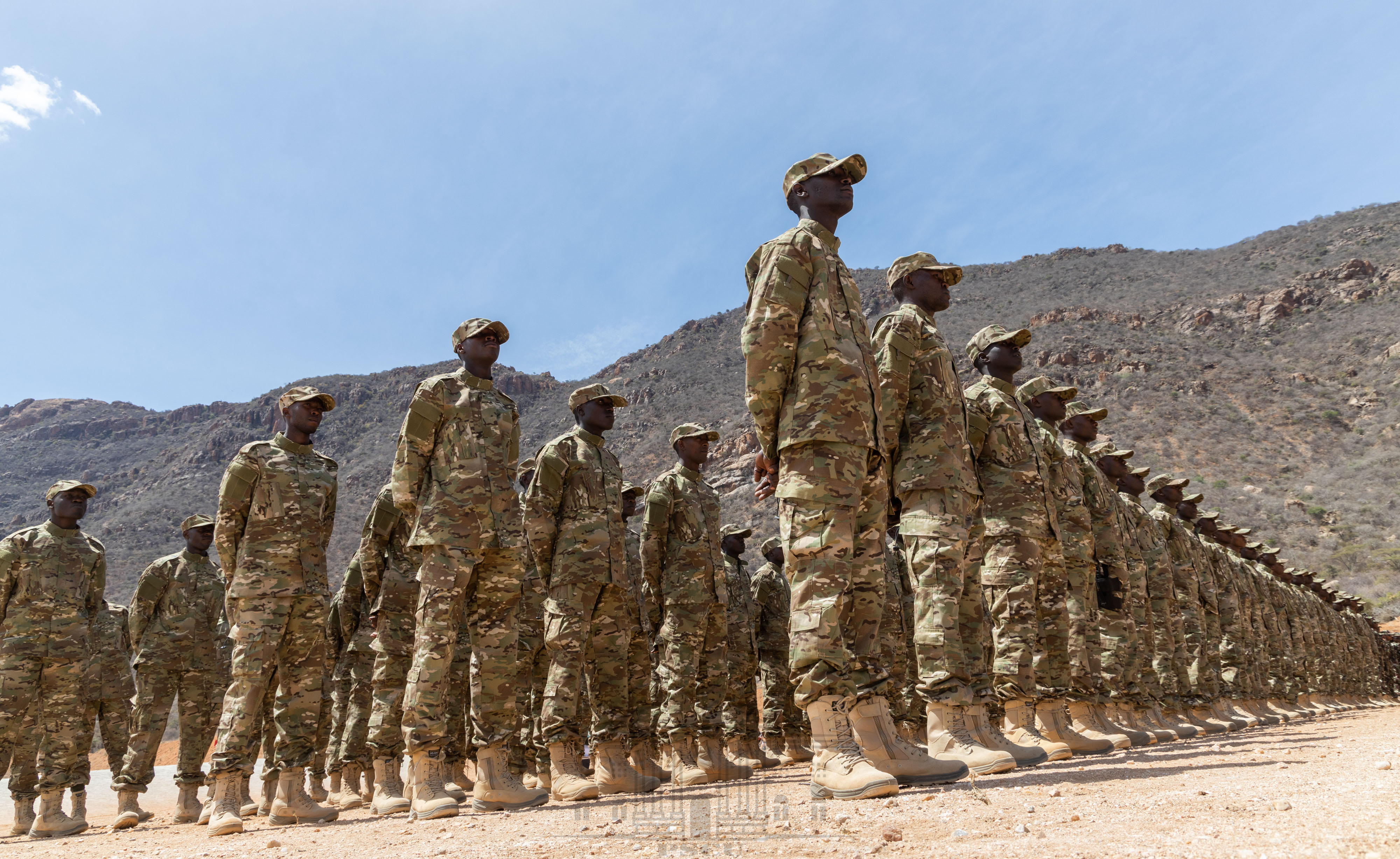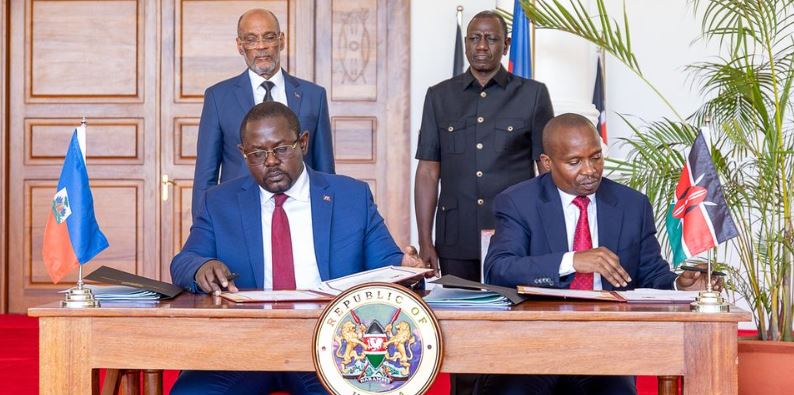
The Kenyan-led force of the Multinational Security Support (MSS) Mission in Haiti has successfully regained an important facility taken by the notorious “Viv Ansanm” gang organization barely a week ago.
- The Kenyan-led Multinational Security Support (MSS) Mission in Haiti recently reclaimed a crucial facility from the ‘Viv Ansanm’ gang.
- This facility is key to Haiti’s telecommunications and international airport communication infrastructure.
- The effective operation detained numerous gang members and seized a significant arsenal of weapons.
- Kenyan forces, in collaboration with Haitian authorities, form the core of this international peacekeeping initiative.
The operation, which took place this week, represents one of the MSS’s most important triumphs since its deployment to Haiti in June 2024.
The group had threatened to detonate the facility, which holds important communications for Haiti’s international airport and other vital services.
DON’T MISS THIS: 600 more Kenyan policemen prepare to combat gang violence in Haiti
If this threat had been carried out, it would have severely harmed the country’s telecommunications infrastructure.
MSS spokesman Jack Ombaka acknowledged that the operation resulted in significant losses for the gangs, with numerous people detained and a big cache of weapons confiscated, as reported by Sputnik.
“Kenya’s interest from the very beginning has been to ensure that peace is restored in Haiti,” Kenya’s Principal Secretary of Foreign Affairs, Dr. Korir Sing’oei, told Kenyan media, emphasizing that Nairobi welcomes the move as long as the ultimate goal is achieved.
Kenya’s mission in Haiti
Kenya has taken an active role in the MSS mission, which was designed to aid the Haitian National Police (PNH) in recovering control of a country ravaged by violent gangs.
In July 2023, President William Ruto promised to send 1,000 troops to Haiti, describing the crisis as “a test of global solidarity.”

Kenya sent its first force of 400 security police officers to the Caribbean island in June 2024, kicking off an international peacekeeping operation.
Other countries later supported the effort, notably Jamaica, which contributed two dozen military and police officials to bolster the battle against armed organizations.
Questions had been raised late last year about the relationship between the MSS, which is largely composed of Kenyan police personnel, and the Haitian National Police.
Rumors of a strained partnership threatened to undermine the credibility of the mission. However, both sides firmly dismissed these claims.
Godfrey Otunge, commander of the MSS, clarified that the two forces work closely together in every operation.
“Regarding the allegations that Kenyan police officers accuse their PNH counterparts of colluding with gangs, which sometimes weakens operations, the Haitian National Police and the Multinational Security Support Mission wish to categorically call upon the local population not to be intoxicated by this misinformation and manipulations that are only aimed to discredit the good work the two joint forces are doing to the advantage of the criminal gangs,” he said at the time.
Kenya calls on Brazil
In May 2025, Kenya’s government sought to enhance international collaboration to enhance the mission’s effectiveness.
During a visit to Brazil, Kenya’s Cabinet Secretary, Musalia Mudavadi, asked for both technical knowledge and financial assistance from the South American country to help restore peace and rebuild communities in Haiti.
Mudavadi also encouraged the international community, especially the United Nations, the United States, and other nations from the Americas, to complete and increase their committed contributions to the UN-backed security operation.












